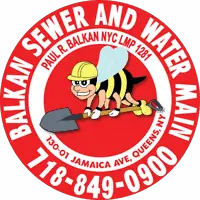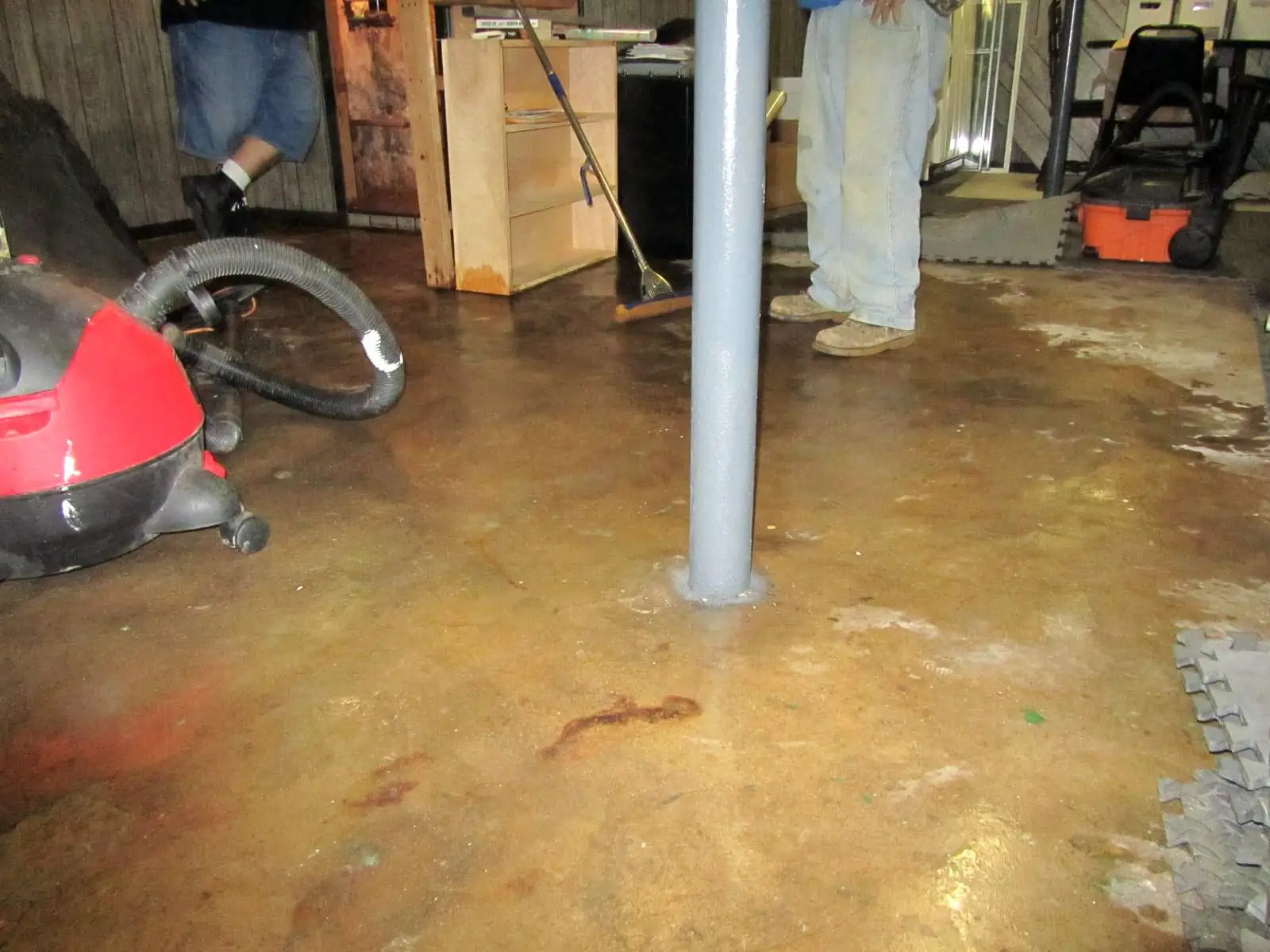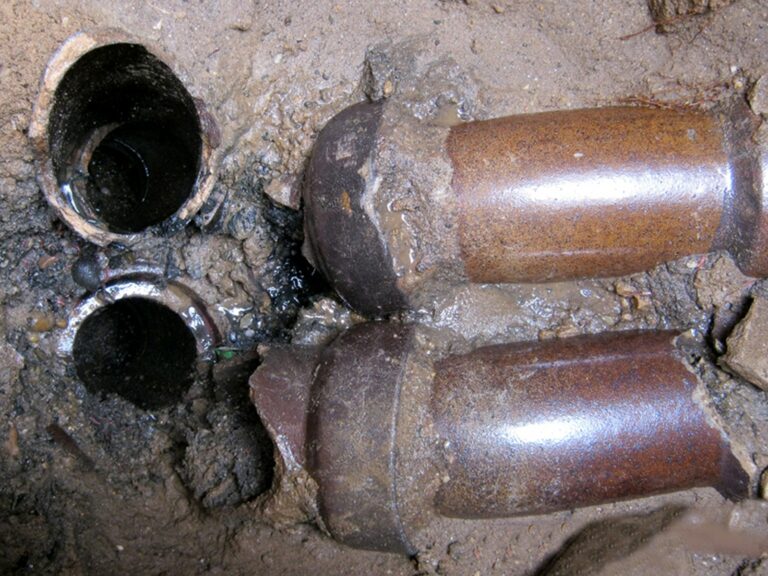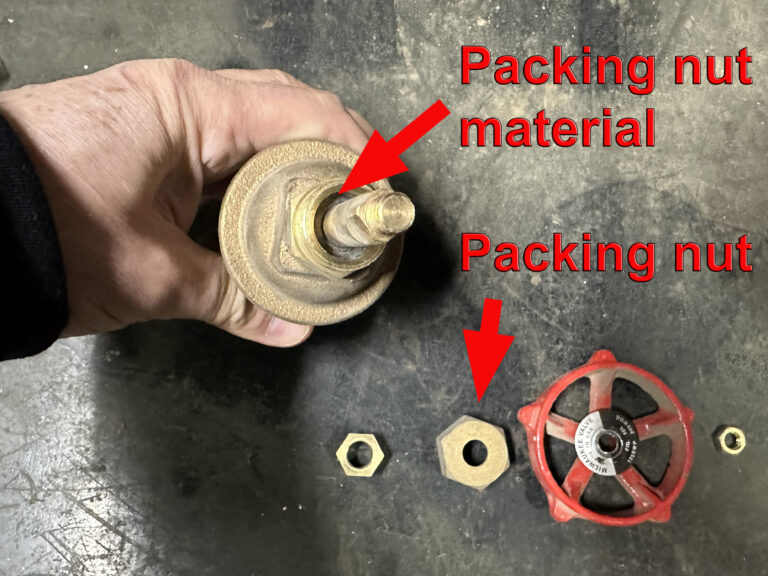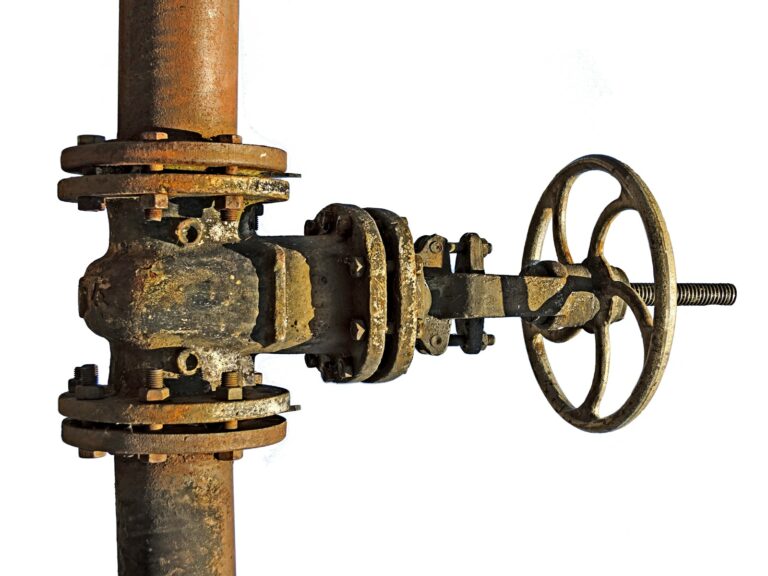Homeowners frequently seem to suffer from house flooding and then the costly aftermath of property damage and clean-up. Perhaps if we define the 11 most common reasons for a home to flood and some clear-cut solutions, we can help homeowners avert or diminish the flooding and the ensuing damage. It is a documented fact that in most cases just one home flooding event costs more than the solution that prevents the event.
The 11 Most Common Causes of House Flooding
The 11 most common reasons for house flooding are divided into two major categories. One category would consist of natural disasters or climate-related issues, while the other would be structural or in the category of plumbing, etc.
The 4 Climate-Related Causes of House Flooding
- Heavy Rainfall: Excessive rain, or extreme and sudden downpours or snow melts, can overwhelm public and private drainage systems. This climactic event is a major cause, and in many areas a primary cause, of house flooding. Combined public sewers are more prone to overflow than dedicated sanitary or stormwater sewer systems. In NYC, as an example, presently 60% of all public sewers take a combined flow of both wastewater and stormwater.
- Natural Disasters: Floods, hurricanes, storms, or tidal surges can cause widespread flooding in homes, and sometimes in entire neighborhoods.
- Public Sewer Backup: If blockages or overflows occur in municipal sewage systems, it can cause sewage to back up into homes as well. This occurs if there is a structural defect in the public sewer system, or if the area has been developed past the point of the public sewer’s capacity to handle the flow of wastewater. However, more frequently this is caused by the public sewer being overburdened by a sudden and dramatic amount of rainfall. Hence, this should be considered climate-related. There are various remedies to prevent basement sewer flooding.
- Ground Water Conditions: In some areas, there is a high water table, this is known as groundwater. Depending on such things as the local tide table, or the amount of rainfall, groundwater levels can rise to be above that of a finished basement floor.
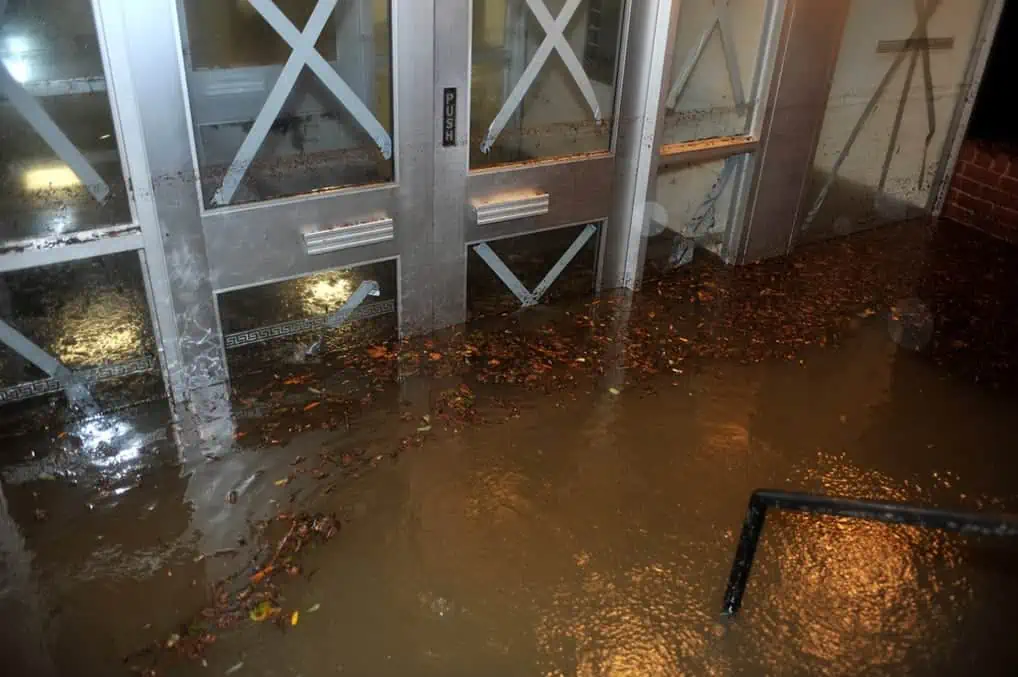
The 7 Structural, Infrastructure, and Property-Related Causes of House Flooding
- Poor Drainage: Frequently house flooding can be caused by clogged gutters, inadequate drainage systems, or sloping landscapes directing water toward the house, instead of the yard or drain outlet letting out water towards the gutter.
- Burst Water or Drain Pipes: In many cases sub-freezing temperatures, aging pipe systems, or excessive pressure can cause pipes to burst, leading to indoor flooding. This can occur either with water pipes or even drain pipes. Frozen water or drain pipes in unoccupied homes are a particular concern.
- Poorly Sealed Windows/Doors, or Roof Outlets: Improperly sealed windows, doors, or outlets exiting above your roof, can allow water to seep inside during storms or heavy rainfall.
- Heating, Ventilation, or Air Conditioning (HVAC) Issues: Air conditioning or heating systems with clogged drains or malfunctioning components can cause water buildup, leaks, and flooding.
- Landscaping Problems: Improperly graded landscapes or poorly placed flowerbeds can direct water toward a home’s foundation, instead of away from it. This can easily cause a home to flood.
- Household Appliance Malfunctions: Malfunctioning or leaking appliances, such as washing machines, dishwashers, or water heaters can flood homes.
- House Foundation Cracks and Leaks: Cracks, weaknesses, or porous areas in a home’s foundation can allow water to seep in during heavy rains or floods.
Solutions to Prevent House Flooding
These causes often result from a combination of natural factors, infrastructure issues, wear and tear, or human error, leading to various degrees of flooding inside homes. However, and as you’ll see below, many if not most of these issues can be addressed and limit house flooding from occurring in the future.
Preventing House Flooding From Sewer Issues
If your house floods from a sewer issue, there is an assortment of sewer backwater valves that prevent sewer water from entering your home. The most widely used sewer valves operate automatically and require no electrical connections or manual operation. In many cases, a good thing to do if your home floods from a sewer, is to couple the installation of a sewer valve with a sewer alarm, and a water sensor alarm as well.
An 11-Point Plan to Prevent Climate-Related Flooding Issues in Your Home
Preventing property-related house flooding issues in many cases just means being proactive. Some of the 11 most common cures come to mind:
- Regrade your yard to allow rainwater to flow away from your home.
- If you cannot regrade your yard, or you have a high water table, frequently installing a French drain is a good solution. Typically, a French drain is made from perforated pipe installed under the surface on a slight slope (the pipe is pitched). At the endpoint, it empties into a sump, where a pump will dispense the water in an approved manner.
- If your roof leaders let out onto the ground, make sure they point away from your foundation wall and add an extension on the outlet portion of the leader line.
- Have a cracked or porous foundation wall professionally assessed and repaired. Get at least three opinions and three quotes as well. The longer you wait, the more damage is being done to the foundation your home is resting on.
- Have your roof leaders and gutters cleaned at least once a year. This is especially true if you have tall trees above and close to your roof line
- Have a professional inspect your roof to check on its integrity. In addition, check the seals around all vent pipes, chimneys, and any other items exiting your roof. It’s a good idea to reseal all of these items every so often with an appropriate tar, or other approved material.
- Periodically check the caulking and seal on the outside of all of your windows.
- Cover and winterize any exposed water and sewer pipes before sub-freezing weather comes along. This is particularly true in unoccupied homes, or unheated areas of an occupied home.
- Make sure your clothes washer and dishwater drain lines are secured in place. Clothes washers in particular have a great deal of vibration and can cause a pressurized drain line to break free.
- Install a low-cost water sensor alarm in any basement floor drain and near your hot water heater and boiler. This simple alarm will warn you of water in your basement way before damage occurs.
- In areas where there is an extreme risk of natural disasters, consider installing a gas-powered generator and connecting it to sump pumps in appropriate areas inside or outside your home.
A Final Piece of Advice Regarding Home Flooding Prevention
In many cases the causes of the damage and the recurrence of home flooding are not the event, it is the inaction by the homeowner to prevent it. That may sound harsh, but folks don’t seem to understand the full cost of taking care of a home after it’s been flooded. The national average cost to clean up a flooded basement is around $4,000.00.
Add in your lost personal property, potentially losing rental income, and have your home insurance rates increased, and the full cost of a home flood becomes readily apparent. Remedying the potential for a catastrophic home flood can also be much less costly and simpler than what to do if your house gets damaged from flooding.
